#tshiluba
Explore tagged Tumblr posts
Text
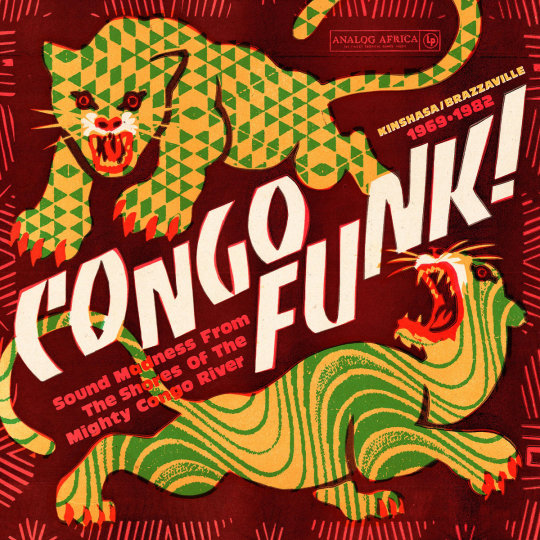
Tracklist:
Sungu Lubuka • Mfuur Ma • M.B.T's Sound • Musique Tshiluba • Lalia • Adeito • Ngantsie Soul • Nganga • Tembe Na Tembe Ya Nini • Lolo Soulfire • Femme Ne Pleure Pas • Kiwita Kumunani • Fiancée Laya • Ah! Congo
Spotify ♪ Bandcamp ♪ YouTube
#hyltta-polls#polls#artist: analog africa#language: instrumental#decade: 2020s#Soukous#Congolese Rumba#artist: petelo vicka et son nzazi#artist: groupe minzoto ya zaïre#artist: m.b.t's#artist: abeti et les redoutables#artist: trio bydoli#artist: tabu ley et l'orchestre#artist: les bantous de la capitale#artist: les frères soki et l'orchestre bella-bella#artist: orchestre celi bitshou#artist: lolo et l'orchestre o.k. jazz#artist: zaïko langa langa#artist: franco & le t.p ok jazz#artist: g.o. malebo#artist: orchestre national du congo
29 notes
·
View notes
Text
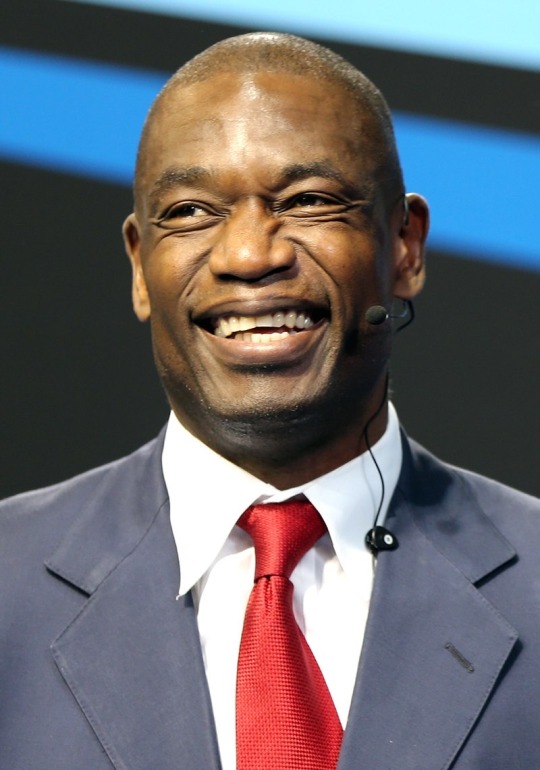
Dikembe Mutombo Mpolondo Mukamba Jean-Jacques Wamutombo (born June 25, 1966) is a former basketball player. He played 18 seasons in the NBA. He has become well known for his humanitarian work.
He began his career with the Georgetown Hoyas, and is regarded as one of the best-shot blockers and defensive players of all time, winning the NBA Defensive Player of the Year Award four times; he was an eight-time All-Star. He surpassed Kareem Abdul-Jabbar as the second most prolific shot blocker in NBA history and he averaged a double-double for most of his career.
After the 2009 NBA playoffs, he announced his retirement. He was inducted into the Naismith Memorial Basketball Hall of Fame.
He was born in Kinshasa, Democratic Republic of the Congo. His father worked as a school principal and then in Congo’s Department of Education. Mutombo speaks English, French, Spanish, Portuguese, and five Central African languages, including Lingala and Tshiluba. He is a member of the Luba ethnic group. He decided to work on his basketball career. He moved to the US in 1987 to enroll in college.
His older brother, Ilo, began playing college basketball for the Southern Indiana Screaming Eagles. The brothers played against each other in a 1990 game at the Capital Centre.
He married Rose and they have three children together. They adopted four children from Rose’s deceased brothers. His son, Ryan, was ranked as the 16th-best center in high school and committed in 2021 to play at Georgetown.
He was awarded an honorary Doctor of Humane Letters by the State University of New York College at Cortland for his humanitarian work in Africa. He was awarded an honorary doctorate by Georgetown University.
A well-known humanitarian, he started the Dikembe Mutombo Foundation to improve living conditions in his native Democratic Republic of Congo. He participated in the Basketball Without Borders NBA program. He paid for uniforms and expenses for the Zaire women’s basketball team during the 1996 Centennial Olympic Games. He is a spokesman for the international relief agency, CARE and is the first youth emissary for the UN Development Program. #africanhistory365 #africanexcellence
6 notes
·
View notes
Text
Today's Prompt Is...
ilunga (tshiluba) - (n.) a person who is ready to forgive and forget any abuse for the first time, tolerate it the second time, but never on the third offense
2 notes
·
View notes
Text
Bulk Messaging in DR Congo: A Cost-Effective Tool for Business Communication

Introduction
The Democratic Republic of Congo (DR Congo), with a population of over 100 million people, is undergoing a digital transformation. While internet access continues to grow slowly, mobile phone usage has rapidly expanded across both urban and rural regions. In this environment, bulk messaging—sending a single SMS to thousands of recipients at once—has emerged as a reliable, low-cost, and high-impact communication strategy.
Whether you're a small business in Kinshasa, a healthcare provider in Goma, or a government agency running awareness campaigns in Bukavu, bulk messaging offers an unmatched way to reach people directly.
What Is Bulk Messaging?
Bulk messaging refers to the distribution of large volumes of SMS (Short Message Service) messages to a group of recipients simultaneously. It is used by businesses and organizations to:
Promote offers and discounts
Send appointment reminders
Provide transaction alerts
Share event invitations
Deliver public service announcements
Bulk SMS does not require internet access or a smartphone, making it ideal for DR Congo, where basic mobile phones are still widespread.
Why Bulk Messaging Works in DR Congo
High Mobile Penetration
Most Congolese citizens own at least one mobile device, even in remote areas.
Over 45 million mobile subscribers in DR Congo, according to GSMA 2024 stats.
Limited Internet Access
Internet penetration is still under 30%, making web-based ads less effective.
SMS reaches people where WhatsApp and Facebook can't.
Cost-Effective Communication
Bulk SMS is significantly cheaper than running radio or billboard ads.
Local SMS providers offer low per-message rates for high volumes.
Instant Delivery and High Open Rates
SMS messages are delivered in real-time and boast open rates of 98%.
Most messages are read within 3 minutes of receipt.
Key Use Cases in DR Congo
1. Retail and Commerce
Local shops and chain stores use SMS to send sales alerts and product launches.
Example: A Kinshasa clothing store promotes weekend discounts via SMS and sees a 20% increase in foot traffic.
2. Healthcare
Clinics and pharmacies use SMS to remind patients about appointments or medication pickups.
NGOs running vaccination drives send SMS alerts to parents in rural areas.
3. Government and NGOs
Government ministries use SMS for civil service notifications and voter awareness.
Humanitarian groups deliver safety updates or campaign messages during crises.
4. Schools and Universities
Fee reminders, exam schedules, and parent-teacher meeting updates.
Private schools in Lubumbashi use SMS to notify parents instantly.
5. Banking and Mobile Money
Transaction alerts and fraud warnings sent to mobile wallets.
SMS supports unbanked citizens using mobile money apps like M-Pesa or Airtel Money.
Choosing a Bulk Messaging Provider in DR Congo
Several local and international platforms offer bulk messaging services in DR Congo. When choosing a provider, consider the following:
Delivery Rate: Does the platform ensure quick and reliable message delivery?
Local Support: Is there a support team familiar with Congolese regulations and telecom infrastructure?
Multi-language Support: Can you send messages in French, Lingala, Swahili, or Tshiluba?
API Access: Can you integrate SMS into your business software or CRM?
Cost and Payment Options: Are prices affordable and payments accepted in local currency?
Recommended Providers:
Africala – known for fast delivery and custom solutions across Central Africa
SMSala – international reach, suitable for regional campaigns
MTN and Airtel platforms – for localized bulk SMS solutions within their networks
Best Practices for Bulk Messaging in DR Congo
Get Consent: Always collect opt-ins before sending messages. Consent builds trust and ensures legal compliance.
Keep It Short and Clear: Use simple French or local language. Avoid jargon.
Include a Call-to-Action: “Visit today”, “Reply YES to confirm”, or “Show this SMS for 10% off”.
Track Performance: Use delivery and response reports to optimize future campaigns.
Send at the Right Time: Avoid late-night or early-morning messages. Midday or early evening works best.
Legal Considerations
While SMS is less regulated than email marketing, DR Congo’s communication authorities emphasize responsible messaging. Businesses should:
Follow anti-spam practices (no unsolicited bulk SMS)
Include opt-out instructions when appropriate
Comply with the ARPTC (Autorité de Régulation de la Poste et des Télécommunications du Congo) guidelines
Future of Bulk Messaging in DR Congo
The role of SMS will likely grow alongside digital services. Integration with:
Chatbots for customer support
Payment gateways for transactional SMS
CRM tools for segmentation and personalization
...will transform how businesses operate in the Congolese market. As data prices drop and digital adoption increases, SMS will complement richer mobile strategies—but it won’t be replaced any time soon.
Conclusion
Bulk messaging in DR Congo is more than just a marketing tool—it’s a communication lifeline. It connects businesses, institutions, and communities in a way that’s direct, affordable, and universally accessible. For companies looking to expand their reach, engage customers, or improve service delivery, bulk SMS is the smartest way forward in the Congolese market.
FAQs
1. How much does bulk SMS cost in DR Congo? Costs vary, but local providers offer competitive rates, often around $0.01–$0.03 per SMS for bulk purchases.
2. Do I need internet access to send or receive bulk SMS? You only need internet access to send messages via a platform, but recipients can receive them without an internet connection.
3. Can I send messages in local Congolese languages? Yes, many platforms support Unicode, which allows messages in Swahili, Lingala, Tshiluba, and others.
0 notes
Text
The BIG ASK 2025
We wish you a joyful and Merry Christmas and a blessed New Year! Thanks to your support, 2024 ended on a high note. We are deeply grateful for your generosity and partnership. May God’s blessings be upon you and your loved ones this holiday season.
As we celebrate, let us remember that Jesus is the reason for the season. We pray you find joy in His free gift of salvation and cherish meaningful moments with your family and friends.
In 2024, many came to know Christ as their Savior, and some followed in obedience through baptism. What a year of transformation! With your continued prayers and financial support, we eagerly anticipate expanding this mission in 2025.
Thank you for walking this journey with us. Together, we are making an eternal impact!
As we enter our 34th year of fulfilling the Great Commission, we remain steadfast in our mission: sharing the Gospel through evangelism, discipleship, training pastors, planting churches, and strengthening Christians. Our conferences for young people, women, and men are a source of encouragement and renewal, while our Academy provides students with a solid education, Bible training, and chapel preaching.
There are many ongoing and upcoming projects that need support, and we humbly ask you to continue partnering with us. Your generous hearts enable us to fulfill the shared desire to advance world missions through our organization, transforming lives through Jesus Christ in the Democratic Republic of the Congo.
The DRC is rising from the ashes of devastating conflict, which claimed over 6 million lives since 1998���many lost to hunger and disease. Your support is vital to bringing hope to this nation.
Our “BIG ASK 2025” is to sustain Rise Congo’s operations across eight provinces and beyond. We are praying and trusting God to provide $30,000 to meet this need. Will you join us in prayer for this ministry of hope? Will you commit to giving to this ministry of transformation?
Thank you for your love, generosity, and friendship. Together, we are making a lasting impact.
We are now in eight provinces marked in red on the country map:
1. Kinshasa 2. Kwilu 3. Kwango 4. Kasaï 5. Kasaï-Central 6. Kasaï Oriental 7. Sankuru 8. Lomami. We desire to expand beyond these provinces.Pray!
The language used in our 5 Bible colleges is French. Other languages in our 33 churches are Lingala, Kikongo, and Tshiluba. We are always in need of Bibles and of printing songbooks.

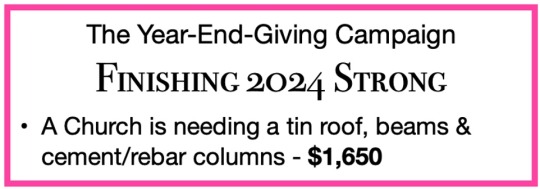
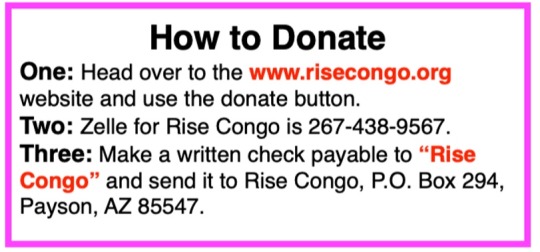
0 notes
Text
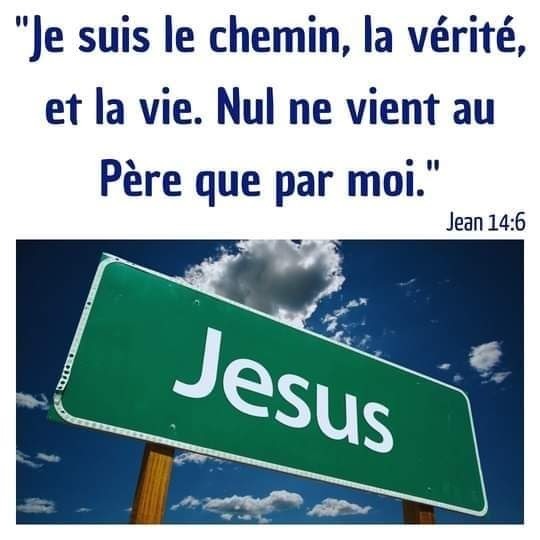
DIMANCHE, LE 22/10/2023.
MÉDITATION DU JOUR :
MATTHIEU 23: 15.
THÈME : L' ACHAT DES ÂMES
TEXTE : V15 " Malheur à vous, scribes et pharisiens hypocrites! parce que vous courez la mer et la terre pour faire un prosélyte, et, quand il l'est devenu, vous en faites un fils de la géhenne deux fois plus que vous "
Ces acheteurs ont battu en brèche l'exhortation de Jacques dans son épître universelle de Jacques 3:1. Ils sont partout, ils parcourent les villages, les villes, les quartiers, les rues, chacun attire selon sa ruse.
C'est esprit d'achat des âmes est autrement appelé : Le Prosélytisme. Achat des adeptes. On trouve ces soi-disant serviteurs partout au monde. Ces tendeurs de pièges savent où les chercher et comment les attraper. Une fois les avoir eu, ils les rendent plus malheureux, ils les isolent des autres, les exploitent et les pillent sans tenir compte de leur rang social ( veuves, orphelins, démunis, handicapés physiques..). La paie de dîmes et offrandes est obligatoire. Ils contrôlent les économies des autres, la vie des autres. Ils leur imposent les jeûnes et longues prières qu'eux - mêmes ne les font pas. Ils imposent les préceptes sur préceptes. Ils hôtent à leurs adeptes les vrais sens de vivre, leur l'indépendance spirituelle et les rendent plus misérables qu'avant.
Ils ouvrent les hangars partout sans même tenir compte des autres. Leur souci majeur est d'avoir plus d'adeptes pour rendre heureuse leur vie personnelle.
Ils laissent ceux de Kinshasa se nourrir des herbes poisons et sont ailleurs en Afrique du Sud, au Canada , aux Etats- Unis. Non aux villages, non et non pour ramasser quoi ?
Les vrais adeptes sont dans les grandes villes, les pays développés ou riches du monde. Chez les pygmées non qu'est-ce qu'on peut attraper là. Dépenses inutiles.
Certains ont leurs prosélytes dans les grands marchés. La question, où ils mettent ces gens qui semblent se convertir chez-eux? Ils leur interdisent d'aller dans d'autres églises de peur d'être gagné là bas. Bref, chacun a ses adeptes, ses novices, son champ d'exploitation pour sa survie et tout le monde parle au nom de Jésus Christ. Esaïe 4:1.
Ces âmes achetées sont cachées pour l'enfer.
Quelques méthodes employées.
1. Lavage de cerveau : chaque jour, ils sont là pour flatter : Tu vois chez-nous.., Dieu a dit...
2. Ils prophétisent pour n'importe qui et en tout lieu. Les vrais cibles sont les femmes.
3. Ils s'arrangent avant pour que l'un d'entre-eux, témoigne les mensonges.
4. Ils appellent les gens en vue de témoigner des faussetés par média. Venez nous sommes sur cette adresse, nôtre numéro téléphonique.... , Venez, chez-nous il y a solutions de tous vos problèmes, il y a la guérison, prenez votre miracle.. que sais -je encore.
Ce sont les vendeurs d'illusions .
Même en pleine ville, nous rencontrons beaucoup de ces hangars où on ne prêchent par exemple à Kikongo, ou à Tshiluba, ou à Swahili, vous nous direz peut-être que ce n'est pas mal. Mais dans une église qu'on ne trouve qu'une seule tribu? Pourquoi Jésus-Christ est -il mort sur la Croix ? N'est-ce pas pour réconcilier, faire de toutes les tribus une seule nation, une seule langue et un seul peuple? Au village c'est passable.
La Bible leur profère les malédictions à leur endroit : " Malheur à vous, les scribes et pharisiens hypocrites ! parce que vous fermez aux hommes le royaume des cieux, et vous n'y entrez pas vous -mêmes et vous n'y faites pas entrer, ceux qui en veulent "
Ils privent les gens de savourer la joie de vivre en famille , de partager leur amour avec les gens des quartiers et de communier avec les autres chrétiens, ils les font cloués toujours à l'église pour les jeùnes qui ruinent la santé, les longs cultes qui se terminent par les offrandes aux familles des pasteurs, des dîmes et autres assistances. Pasteur, je dois jeûner 10 jours à sec parce que tu veux aller en Europe ? Oh africains ? Pourquoi priver les autres de leur liberté ? de leurs droits ? La Bible vous autorise t- elle ?
0 notes
Video
youtube
Lyrics Cicatrice d'amour - Tshala Muana
#youtube#RIP#Mutwashi Queen#Tshala Muana#tshiluba#Muluba#kiluba#Baluba#Drc#artist#artists#artists on tumblr#Mutwashi#Mutuashi#culture#kongo#bantu
2 notes
·
View notes
Photo
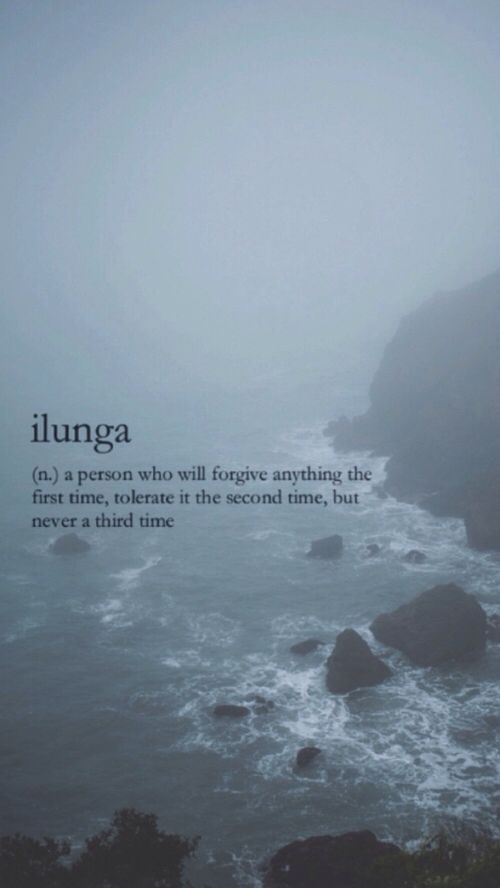
Source: ??
35 notes
·
View notes
Text
Discovering the world
Democratic Republic of the Congo 🇨🇩
Basic facts
Official name: République démocratique du Congo (Democratic Republic of the Congo)
Capital city: Kinshasa
Population: 102.2 million (2023)
Demonym: Congolese
Type of government: unitary semi-presidential republic
Head of state: Félix Tshisekedi (President)
Head of government: Judith Suminwa (Prime Minister)
Gross domestic product (purchasing power parity): $150.88 billion (2023)
Gini coefficient of wealth inequality: 42.1% (medium) (2012)
Human Development Index: 0.481 (low) (2022)
Currency: Congolese franc (CDF)
Fun fact: It is the most biodiverse country in Africa.
Etymology
The country’s name comes from the Congo River, which was named after the Kingdom of Kongo. The word “Kongo” probably derives from the root konga, which means “to gather”.
Geography
The Democratic Republic of the Congo is located in Central Africa and borders the Central African Republic to the north, South Sudan to the northeast, Uganda, Rwanda, and Burundi to the east, Zambia to the southeast, Angola to the southwest, and the Republic of the Congo to the west.

There are five main climates: tropical rainforest and tropical monsoon in the center, dry-winter tropical savanna in the northernmost part and south, and monsoon-influenced humid subtropical and subtropical highland in the east and southeast. Temperatures range from 8 °C (46.4 °F) in winter to 32 °C (89.6 °F) in summer. The average annual temperature is 24 °C (75 °F).

The country is divided into twenty-six provinces (provinces), which are further divided into 145 territories (territoires) and 33 cities (villes). The largest cities in the Democratic Republic of the Congo are Kinshasa, Mbuji-Mayi, Lubumbashi, Kisangani, and Kananga.

History
500 BCE: Bantu expansion
1390-1914: Kingdom of Kongo
1585-1889: Empire of Luba
1665-1887: Kingdom of Lunda
1620-1882: Anziku Kingdom
1885-1908: Congo Free State
1908-1960: Belgian Congo
1959: Léopoldville riots
1960-1964: Republic of the Congo
1960-1965: Congo Crisis
1964-1971: Democratic Republic of the Congo
1971-1997: Republic of Zaire
1996-1997: First Congo War
1997-present: Democratic Republic of the Congo
1998-2003: Second Congo War
1999-present: Ituri conflict
2004-2009, 2012-2013, 2015-present: Kivu conflict
2009: Dongo conflict
2013-2018: Batwa-Luba clashes
2016-2019: Kamwina Nsapu rebellion
2018: Yumbi massacre
Economy
The Democratic Republic of the Congo mainly imports from China, the United States, and Zambia and exports to China, Zambia, and South Africa. Its top exports are copper, cocoa beans, and gold.
It has abundant cobalt, copper, diamonds, and gold reserves. The primary sector represents 44.2% of the GDP, followed by services (33.1%) and industry (22.6%).

The Democratic Republic of the Congo is a member of the African Union, the Common Market for Eastern and Southern Africa, the Economic Community of Central African States, la Francophonie, and the Southern African Development Community.
Demographics
The largest ethnic groups are the Luba-Kasai (7.7%), Kongo (6.9%), Mongo (6.9), Luba-Katanga (5.5%), Lulua (5%), Tetela (4%), Nande (3.7%), Ngbandi (3.1%), Ngombe (2.9%), Yaka (2.9%), and Ngbaka (2.8%). The main religion is Christianity, practiced by 95.4% of the population, the majority of which are Catholic.

It has a negative net migration rate and a fertility rate of 5.6 children per woman. 46.8% of the population lives in urban areas. Life expectancy is 61.8 years and the median age is 16.7 years. The literacy rate is 77%.
Languages
The official language of the country is French, spoken by 51% of the population. Kituba (8.8%), Lingala (59%), Swahili (8.8%), and Tshiluba (11%) are recognized as national languages.

Culture
Congolese culture reflects the diversity of the 250+ ethnic groups. All of them place a great value on music, as a result of which the country has a rich musical tradition.
Men traditionally wear a dashiki shirt and pants. Women wear a top and a long skirt, and a headdress in bright colors.

Architecture
Traditional houses in the Democratic Republic of the Congo are made of mud, sticks, straw, and tin.

Cuisine
The Congolese diet is based on cassava, meat, potatoes, rice, and vegetables. Typical dishes include chikwangue (fermented cassava wrapped in leaves), liboké (chicken, fish, and vegetables wrapped in banana leaves), mikate (deep-fried dough balls), moambe chicken (roasted chicken braised in palm nut with onion and tomato and served over rice), and pondu ya madesu (a stew of cassava leaves and beans).

Holidays and festivals
Like other Christian countries, the Democratic Republic of the Congo celebrates Christmas Day. It also commemorates New Year’s Day and Labor Day.
Specific Congolese holidays include Martyrs’ Day on January 4, which celebrates the beginning of the independence movement; Laurent-Désiré Kabila Assassination on January 16; Patrice Lumumba Assassination on January 17; Kimbangu’s Day on April 6, which commemorates the memory of Simon Kimbangu; Liberation Day on May 17; Independence Day on June 30, and Parents’ Day on August 1.

Kimbangu’s Day
Other celebrations include the Festival of Masks, the Makala Festival, which gathers poets and writers, and the Yam Festival.

Yam Festival
Landmarks
There are five UNESCO World Heritage Sites: Gatamba National Park, Kahuzi-Biéga National Park, Okapi Wildlife Reserve, Salonga National Park, and Virunga National Park.

Okapi Wildlife Reserve
Other landmarks include the Cathedral of Saints Peter and Paul, the Matupi Cave, Mount Nyiragongo, the Our Lady of Peace Cathedral, and the Palais de la Nation.
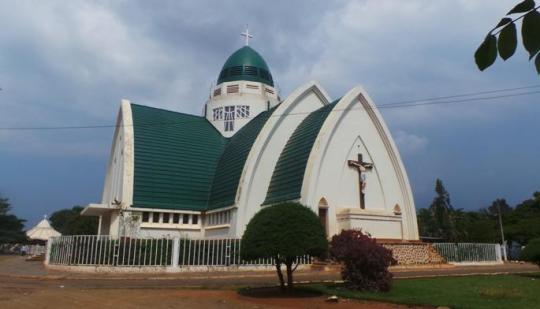
Our Lady of Peace Cathedral
Famous people
Bodys Isek Kingelez - sculptor
Clémentine Nzuji - poet and writer
Emmanuel Kabongo - actor
Godelic Van den Brandt - actress
M’pongo Love - singer
Maître Gims - singer
Marie-Antoinette Katoto - soccer player
Moseka Yogo Ambake - painter
Muteba Kidiaba - soccer player
V. Y. Mudimbe - poet and writer

Bodys Isek Kingelez
You can find out more about life in the Democratic Republic of the Congo in this post and this video.
2 notes
·
View notes
Link
Introducción al pueblo Luba R.D. del CONGO ZAMBIA#BaLuban #DepresiónUpemban #MuLopwe #tshiluba #africa #Zambia
0 notes
Photo
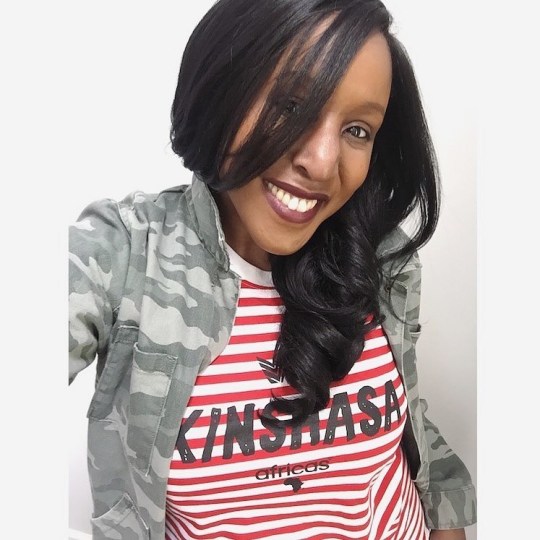
@faithbylovekmct - - - - - - #DRCongo60🇨🇩 • • • • #WeStillBelieve — 60+Infinity Before colonial rule, we were...and we are, and we shall be. - Through “justice, peace, work” abiding in the Creator’s grace, we shall be eternally. - Debout Congolais, Courage Congolais. - KMCT — Tee: @drcapeparel @gorilla.ndelo Supporting one of my favorite Congolese owned business today ♥️ — #drc #drcongo #independenceday #June301960 #rdc #KinLaBelle #lingala #kikongo #swahili #tshiluba #lumumba #LaBelleEpoque #MwanaCongo (at DRC ApeParel) https://www.instagram.com/p/CCE6UqYhYDW/?igshid=bqvjqa77hw4e
#drcongo60🇨🇩#westillbelieve#drc#drcongo#independenceday#june301960#rdc#kinlabelle#lingala#kikongo#swahili#tshiluba#lumumba#labelleepoque#mwanacongo
0 notes
Photo
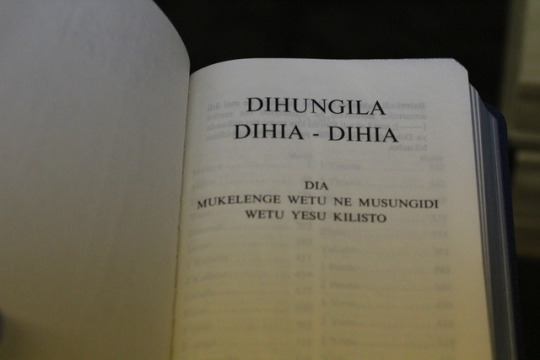
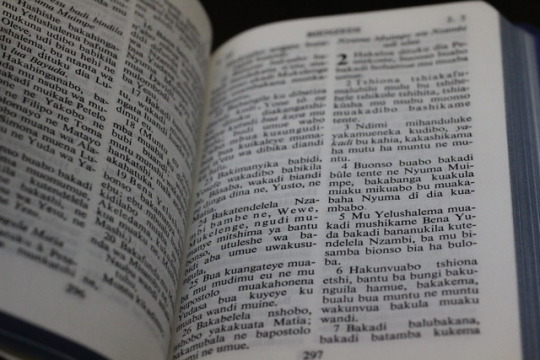
Tshiluba Bible, 1966.
Housed at the Quayle Bible Collection.
2 notes
·
View notes
Photo

Ceremonial presentation of the Muyun. zaïre by Angelo turconi ) #zaïre #vintagecongo #village #africanvillage #africanoccult #congolese #congordc #muluba #tshiluba #luba #blackgirlmagic #love #africanhistory #africantradition #africantravel #africantribes
#africanvillage#love#africanhistory#africanoccult#tshiluba#muluba#africantravel#congolese#zaïre#africantribes#congordc#blackgirlmagic#luba#vintagecongo#africantradition#village
5 notes
·
View notes
Text
Why Is French So Popular? Know Its Popularity
In many African countries where numerous languages are spoken, French serves as a valuable bridge language. While French became the language of government during their time as French or Belgian colonies, the language has remained as an official language so that no local cultural or ethnic group's language takes precedence over others.
While French is the official language of the Democratic Republic of the Congo, Lingala, Swahili, Tshiluba, and Kikongo ya leta are all recognised languages spoken throughout the country. Unlike these regional languages, French's international reach permits it to serve as a linguistic bridge to the rest of the globe. French language institute in Pondicherry offers you the class in right way.

The (Relative) Ease of Learning French
While there aren't as many native speakers of French as there are of Mandarin, Arabic, or Hindi/Urdu, many students find it easier to learn. This is especially true for pupils whose first language is a European language, which accounts for roughly a quarter of the world's population.
Indeed, the Foreign Service Institute compiled a list of languages ranked on their ease of learning. French is in the first category, which is the easiest, while other significant languages such as Mandarin and Arabic are in Category 5 – the most difficult!
While other languages are useful for business, the ease with which you may study French may tip the scales for many students when making that selection.
Many people choose to learn French not only for business or to communicate with people all over the world, but also for its tremendous cultural value.
Conclusion
As a result, French has a reputation for being somewhat 'refined,' and some English-speakers choose to use French terms and phrases to add refinement to their statements. While learning any language can make you appear intelligent, mastering French is especially so!
2 notes
·
View notes
Text
Google Web Interface Language Codes
(also for automatic subtitle scraping)
af Afrikaans ak Akan sq Albanian am Amharic ar Arabic hy Armenian az Azerbaijani eu Basque be Belarusian bem Bemba bn Bengali bh Bihari xx-bork Bork, bork, bork! bs Bosnian br Breton bg Bulgarian km Cambodian ca Catalan chr Cherokee ny Chichewa zh-CN Chinese (Simplified) zh-TW Chinese (Traditional) co Corsican hr Croatian cs Czech da Danish nl Dutch xx-elmer Elmer Fudd en English eo Esperanto et Estonian ee Ewe fo Faroese tl Filipino fi Finnish fr French fy Frisian gaa Ga gl Galician ka Georgian de German el Greek gn Guarani gu Gujarati xx-hacker Hacker ht Haitian Creole ha Hausa haw Hawaiian iw Hebrew hi Hindi hu Hungarian is Icelandic ig Igbo id Indonesian ia Interlingua ga Irish it Italian ja Japanese jw Javanese kn Kannada kk Kazakh rw Kinyarwanda rn Kirundi xx-klingon Klingon kg Kongo ko Korean kri Krio (Sierra Leone) ku Kurdish ckb Kurdish (Soranî) ky Kyrgyz lo Laothian la Latin lv Latvian ln Lingala lt Lithuanian loz Lozi lg Luganda ach Luo mk Macedonian mg Malagasy ms Malay ml Malayalam mt Maltese mi Maori mr Marathi mfe Mauritian Creole mo Moldavian mn Mongolian sr-ME Montenegrin ne Nepali pcm Nigerian Pidgin nso Northern Sotho no Norwegian nn Norwegian (Nynorsk) oc Occitan or Oriya om Oromo ps Pashto fa Persian xx-pirate Pirate pl Polish pt-BR Portuguese (Brazil) pt-PT Portuguese (Portugal) pa Punjabi qu Quechua ro Romanian rm Romansh nyn Runyakitara ru Russian gd Scots Gaelic sr Serbian sh Serbo-Croatian st Sesotho tn Setswana crs Seychellois Creole sn Shona sd Sindhi si Sinhalese sk Slovak sl Slovenian so Somali es Spanish es-419 Spanish (Latin American) su Sundanese sw Swahili sv Swedish tg Tajik ta Tamil tt Tatar te Telugu th Thai ti Tigrinya to Tonga lua Tshiluba tum Tumbuka tr Turkish tk Turkmen tw Twi ug Uighur uk Ukrainian ur Urdu uz Uzbek vi Vietnamese cy Welsh wo Wolof xh Xhosa yi Yiddish yo Yoruba zu Zulu
4 notes
·
View notes
Video
youtube
Tshala Muana - Vuluka Diloolo
0 notes